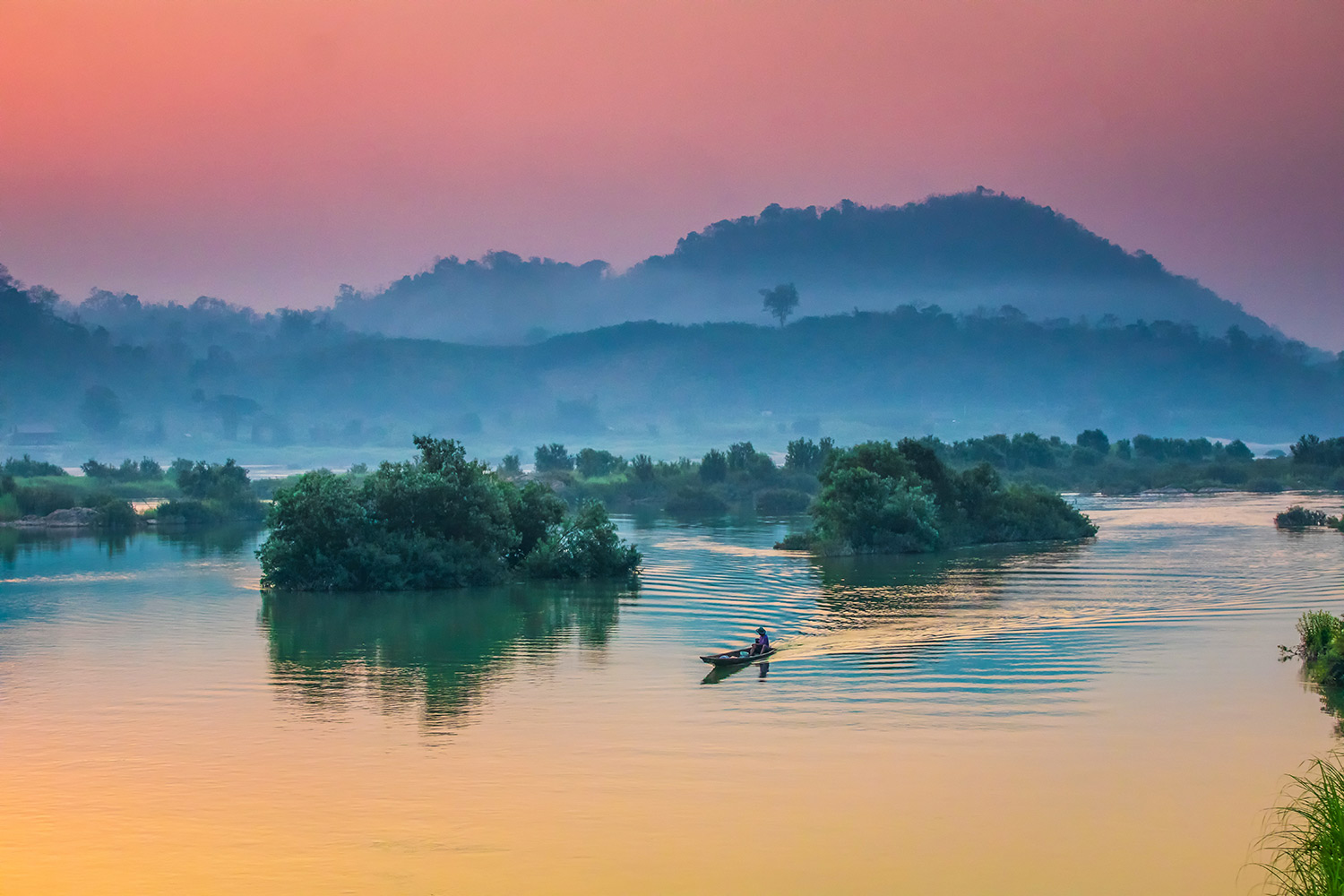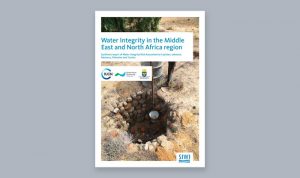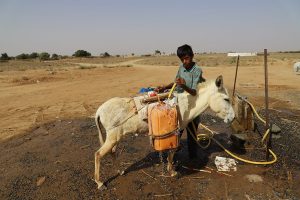Does water contribute to conflicts, and will future wars be fought over water? The answer is yes, and no. Climate change is a threat multiplier that increases the risk of conflicts as access to water becomes more difficult. But countries do not tend to fight water wars, their efforts to address mutual water challenges can instead be a catalyst for peace.
Several United Nation’s Secretary General have warned that future wars will be fought over water, but is there really such a risk? There is no research to support that countries choose war to grab water resources from their neighbours. To test that hypothesis, Aaron Wolf, Shira Yoffe and colleagues at Oregon State University analyzed the world’s international water basins to see if water disputes had led to war in the 20th century. During that time, they did not find a single war fought over water, instead, 149 water-related treaties were signed.
But the relationship between water and conflicts is getting more complicated in an era of climate change, which is increasingly seen as a threat multiplier. Global warming increases the likelihood of natural disasters that can destabilize countries. Extreme droughts and floods will also make it more and more difficult to get access to food and water.
Research from the Stockholm International Peace Research Institute indicates that climate change could trigger a 20-40 per cent decline in food and water availability. To this must be added that water sources are already under pressure from the rapidly increasing global population, which could reach 10 billion by 2050, and growing demand. We must therefore expect intensified competition over water and a rise in social conflicts and violence.
Water scarcity is increasing most rapidly in fragile and conflict-affected regions. Of the world’s 17 most water-scarce countries 12 are located in the Middle East and North Africa. The region is also disproportionately impacted by climate change, has a fast-growing population, relatively weak institutions, and a history of conflicts between and within countries. Many Middle East and North African countries also suffer from rapid degradation of the environment, including water quality.
So, what can be done to reverse these dangerous trends?
Quite a lot, as it turns out:
- Strengthen transboundary cooperation. As the researchers from Oregon State University discovered, countries often tend to cooperate over shared waters. This improves their resilience to climate threats and reduces the risk of violent conflicts.
- Apply water diplomacy tools. Water diplomacy can be defined as a process leading towards establishing and/or enhancing technical and political cooperation over shared waters among a wide range of actors. A growing body of research is increasing our understanding of the processes at play. For an overview, see for example the Journal of Hydrology’s Special Issue on Water Diplomacy with SIWI’s Dr Martina Klimes as editor.
- Climate-proof security policy. The traditional siloed approach to security is no longer sufficient. Experts on security, climate, environment, and development need to share knowledge to understand new threats that arise from climate change, environmental degradation, and population growth as well as social, economic, and political factors.
- Improve water governance. Research is indicating the sustainable management of natural resources can reduce the risk of armed conflict. Improved water governance is becoming more and more important as pressure is growing on the natural world on which also human societies rely. If countries fail to improve how water is managed it can trigger disasters, disease, hunger, and lack of water. During the Covid-19 pandemic, SIWI has noted a growing trend where criminal gangs, terror groups and local militias seek to advance their position by exploiting people’s vulnerability and taking control over local water resources. If people have access to clean water and safe sanitation, they are less likely to fall prey to violent non-state groups.
It is important to understand the complex interlinkages between water and conflicts. Today’s human security risks should be addressed now, before they grow into tomorrow’s global security threats.












